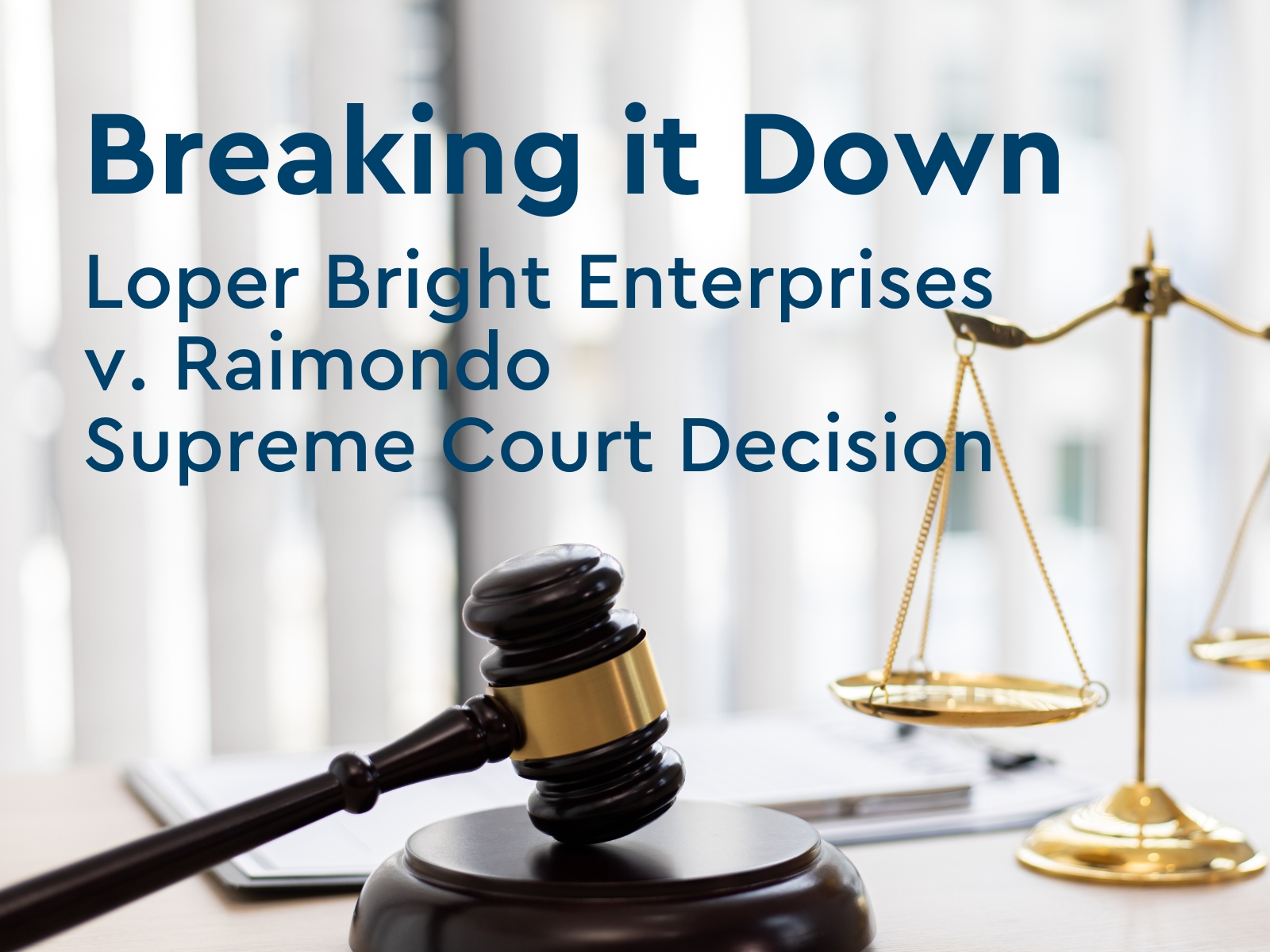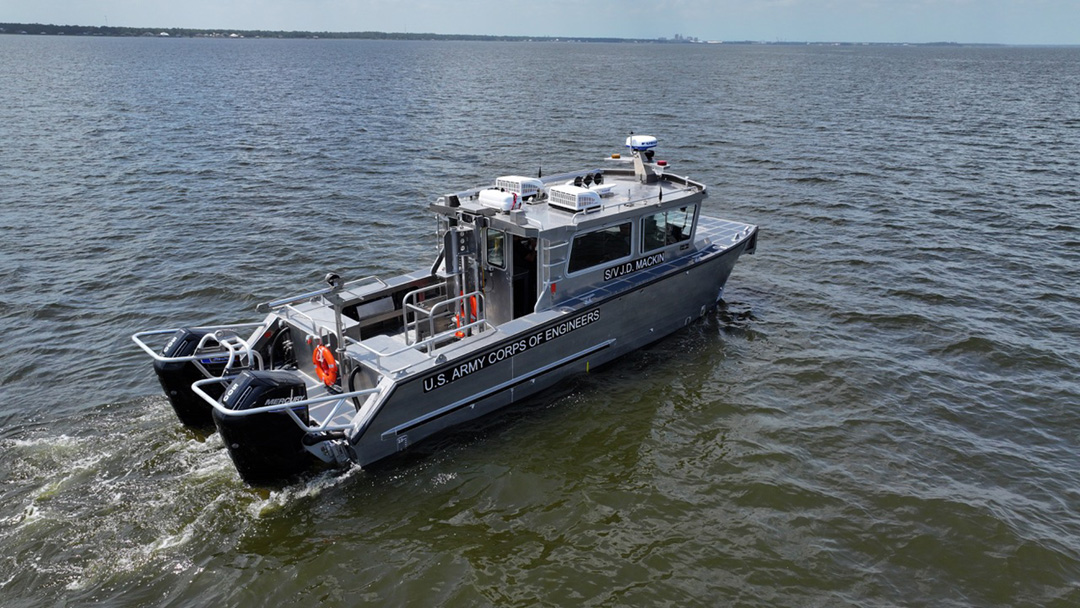Breaking it Down: Loper Bright Enterprises v. Raimondo
Mobile Chamber President and CEO Bradley Byrne breaks down the U.S. Supreme Court’s decisions and how they impact the business community.
By: Bradley Byrne
The history: In the seminal 1803 Supreme Court case of Marburry v. Madison, Chief Justice Marshall clearly stated that Federal courts have the power to interpret the meaning of Federal statutes. Federal courts over the years followed that principle with some very limited exceptions, as where Congress expressly granted a department or agency the authority to interpret their own authorizing statute.
For example: The National Labor Relations Board’s authorizing statute gives it the power to determine when someone is an “employee.”
Chevron Deference: In 1984 the Supreme Court altered this principle in the case of Chevron U.S.A, Inc. v. National Resources Defense Council, Inc. Under the Chevron Deference doctrine, federal courts made a two-part determination.
- First, they determined if the department or agency’s authorizing statute was ambiguous.
- If it was determined to be ambiguous, the courts deferred to the department or agency’s interpretation of the authorizing statute – unless it found the interpretation to be unreasonable, the second part of the test.
Federal departments and agencies, always seeking more power, have continuously interpreted their authority as widely as possible. It was like the foxes guarding the henhouse. Or, as I’ve frequently said, it was like the hammer and the nail: to a hammer everything looks like a nail. To a regulating department or agency, everything needs to be regulated, whether Congress intended for that to be the case or not. Hence, we have seen dramatic growth in Federal regulatory activity with businesses as the most likely victims. When I was in Congress, I co-sponsored a bill which would have repealed Chevron.
The courts have been forced to confront this dilemma as business after business, and many individuals, fought back. Many of these cases were decided ad hoc and the law became a convoluted mess.
The case, Loper Bright Enterprises v. Raimondo, involved a federal agency: the National Marine Fisheries Service (NMFS). This is the agency that cut short our red snapper seasons, as they have jurisdiction of the fisheries of the US out to the 200-mile exclusive economic zone created by international maritime law for each coastal nation.
In Loper Bright, the NMFS required New England commercial herring boats to pay for the attendance of authorized monitors during individual fishing trips to assure compliance with the regulations for that fishery. The NMFS authorizing statute expressly authorizes such monitors for the Pacific but not for the Atlantic. Several commercial fishing companies challenged the requirement, but the lower courts applied Chevron Deference and let the requirement, and the cost of the monitors stand.
Chief Justice Roberts, who’s not been a fan of Chevron Deference, wrote the opinion for a six vote majority and overturned Chevron, thus requiring federal courts to return to their duties as required by Marburry v. Madison. This means the courts must interpret federal department and agency authorizing statutes themselves unless there is an express grant in the authorizing statute for the agency to make its own interpretation, which is rare.
The hue and cry from the regulators and their supporters in the press has been very loud. They say it’s a power grab by the court – even though the federal courts are simply taking back the power they had for two centuries – since the Constitution was written.
They say Congress hasn’t the technical expertise to write authorizing statutes with the level of specificity required by Loper Bright. Maybe it’s the case that it’s a sure sign Congress shouldn’t be writing such laws in the first place if they lack the technical expertise.
Make no mistake about it, this is a huge win for the business community. Exactly how this will play out will come down to an authorizing statute by authorizing statute, and agency by agency determination. And the Loper Bright court was clear that the courts can take into account department and agency interpretations – they’re just not required to defer to them. This will cause departments and agencies to be more circumspect when promulgating and enforcing regulations. In and of itself that’s a huge win for business. I predict more businesses will succeed in pushing back against regulatory overreach.
All Chamber members should consult with their own legal counsel as to what this decision may mean for them in dealing with Federal regulators.
*Chamber members should consult with their counsel to determine how this case might affect enforcement actions against them.
From time to time the crack appellate lawyers at the US Chamber take on or help with such legal efforts so let us know if you have a case which could help develop this law.

Stay Connected
Fill out and submit the form below to get regular updates from Mobile Chamber delivered directly to your inbox.






